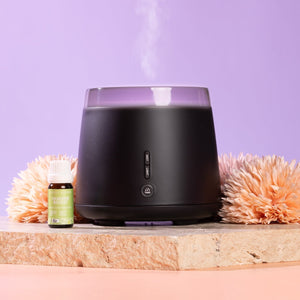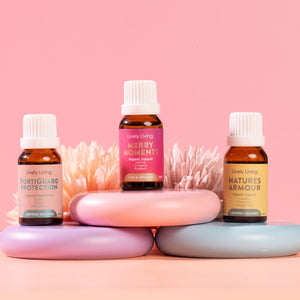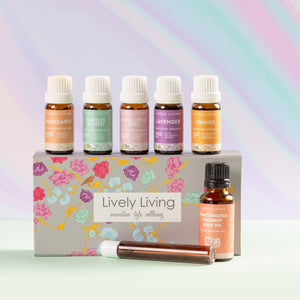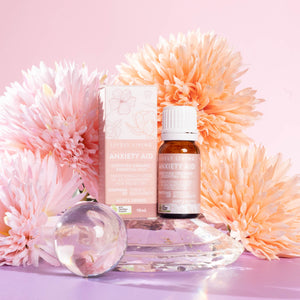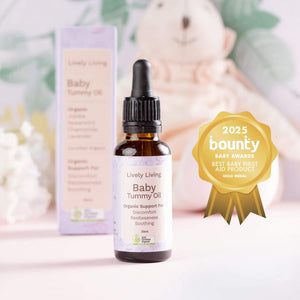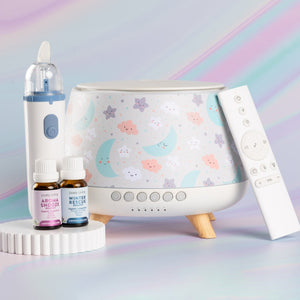Discover the Best Essential Oils for Scars: A Guide
Scars can be a constant reminder of past injuries or various skin conditions. You're probably looking for ways to make them less noticeable. Many people wonder about natural options, and finding the Best essential oils for scars might seem like a promising path. These potent plant extracts, often available as pure essential oils, have been used for centuries. Their potential for skin healing is quite fascinating, and this guide will help you learn how some of the Best essential oils for scars could improve your skin's appearance.
Table Of Contents:
- Understanding Scars and How They Form
- How Can Essential Oils Help With Scars?
- Finding the Best essential oils for scars: A Closer Look
- Carrier Oils: Essential Partners for Your Skin
- How to Use Essential Oils for Scars Safely
- What Else Can Help Scars?
- Important Things to Remember
- Conclusion
Understanding Scars and How They Form
So, what exactly is a scar? It is your body's natural way of healing after an injury. When your skin gets hurt, whether from an accident, surgery like a C-section, or even a difficult childbirth leading to a perineal scar, your body rushes to repair the damage. This process involves creating new collagen fibers.
Collagen is a protein that gives skin its strength and flexibility. Sometimes, the healing process is not perfect, and the new collagen might form differently than the original tissue. This difference is what we see as a scar, a visible mark left after a wound has healed. The look of a scar can depend on many things, including the injury type, its location, and your genetics; even your age and skin type play a role.
Different Types of Scars You Might Encounter
Not all scars are the same. Keloid scars are raised and can grow larger than the original wound, occurring when your body produces too much collagen. Hypertrophic scars are also raised but stay within the wound's boundaries. Atrophic scars, such as those from acne or chickenpox, are indented and form when there is a loss of tissue.
Stretch marks, which often appear during pregnancy or rapid weight changes, are another type of scar. A C-section scar is a common surgical scar that many mothers manage. Similarly, a perineal scar can result from childbirth. Knowing your scar type can help you choose appropriate treatment options, but many essential oils offer broad benefits for various scar tissues.
SHOP LIVELY LIVING ORGANIC SKIN GLOW FACE OIL
How Can Essential Oils Help With Scars?
You might be curious about how these fragrant oils work. Many pure essential oils possess properties that can support skin health and may assist in reducing the appearance of scars. Some are known for their anti-inflammatory effects, which can be particularly helpful for newer scars that might be red and swollen.
Others have antioxidant qualities. Antioxidants combat free radicals, which can damage skin cells and impede healing. Some essential oils may even promote skin cell regeneration, potentially helping new, healthier skin to form. These properties make essential oil blends a popular choice for scar care oil formulations.
Remember, essential oils are very concentrated. They always need to be diluted with a carrier oil before applying to your skin to prevent irritation. Using essential oil dilutions correctly is vital for safe and effective use.
Finding the Best essential oils for scars: A Closer Look
Let's explore some popular choices often mentioned for their skin-healing benefits. Each essential oil has its own profile of compounds contributing to its effects. Thoughtful selection can make a difference in your scar care routine.
Lavender Essential Oil
Lavender oil is a very popular essential oil, frequently used as a massage oil for its calming scent and versatile applications. For scars, lavender essential is thought to promote tissue regeneration. Studies suggest it can help speed up wound healing, which could reduce the chance of significant scarring and improve overall skin appearance.
Its soothing properties can also calm irritated skin around a scar, making it a gentle option for many skin types. To use lavender oil, mix a few drops with a carrier oil like jojoba or almond oil. Gently massage this blend into the scarred area daily; many people find it helpful for burn scars, everyday cuts, and even some surgical scars.
Frankincense Essential Oil
Frankincense essential oil has a rich history, used for medicinal and spiritual purposes for thousands of years. Regarding skin, frankincense essential is prized for its ability to support skin cell health. It may help improve skin tone and elasticity, which can be beneficial for reducing the appearance of various scars, including older, more stubborn ones.
Frankincense oil is often recommended for aging skin and to minimize wrinkles too, thanks to its cytophylactic properties, which encourage new cell growth. Its astringent properties can also help protect skin cells. Research points to its anti-inflammatory action, making it a valuable component in scar care. Mix frankincense with a carrier oil like rosehip seed oil and apply it to scars to potentially help them fade over time.
Helichrysum Essential Oil
Helichrysum essential oil, often derived from Helichrysum italicum, is a powerhouse for skin repair. It is often called 'Immortelle' or 'Everlasting' because the flowers retain their color even after drying. This oil is highly valued for its regenerative properties, making it a top-tier scar care oil.
Helichrysum essential contains compounds called diketones, which are thought to support tissue rebuilding and reduce inflammation. Helichrysum is also known for its potent anti-inflammatory and antioxidant effects. This makes it a top choice for various scars, particularly good for surgical scars (like a C-section scar), acne scars, and stretch marks.
It can be a bit pricier than other oils, but many users feel its effects are worth the cost. Dilute it well in a carrier oil such as tamanu oil for a potent scar treatment.
Tea Tree Essential Oil
Tea tree oil is famous for its antimicrobial properties, and you might know it as a remedy for acne. Its ability to fight bacteria can be helpful, especially if a wound is prone to infection. Preventing infection is crucial for minimizing scar formation and ensuring healthier healing.
Tea tree oil can also have anti-inflammatory effects, which can help with red, raised scars, like hypertrophic ones. Be cautious with tea tree oil as it can be quite strong and may cause irritation if not diluted properly. Always mix it with a carrier oil like coconut oil and apply it sparingly to the affected area; it is often a component in oil soap or specialized oil blends for acne scars.
Geranium Essential Oil
Geranium oil, sometimes referred to as rose geranium for certain varieties, has a lovely floral scent and is also quite beneficial for the skin. It helps balance oil production, making it good for both oily and dry skin types. For scars, geranium oil is valued for promoting circulation, which brings nutrients to the skin and supports the healing process.
It may also help fade dark spots and hyperpigmentation, improving the overall appearance of scarred skin. Its properties might make it useful for evening out skin tone. Try mixing geranium oil with jojoba oil and gently massage it into scars twice a day for potential benefits.
Rosemary Essential Oil
Rosemary oil is not just for cooking; it has properties that can benefit your skin too. It is known to stimulate circulation, which can help bring more oxygen and nutrients to damaged skin tissue, promoting repair. Rosemary also contains antioxidants that protect skin cells from damage.
Some studies suggest it can help with tissue regeneration, which could be useful for reducing the appearance of scars and blemishes. Because of its stimulating nature, it might be especially good for older, stubborn scars. Always dilute rosemary oil in a carrier oil like olive or almond oil, and be mindful if you have sensitive skin, as it can be potent.
Carrot Seed Essential Oil
Carrot seed oil is packed with antioxidants, which can help rejuvenate the skin and protect it from damage. It is thought to stimulate cell renewal, an action very helpful for healing scars. It can also help improve skin tone and elasticity, potentially making scars appear less prominent over time.
Carrot seed oil is often found in anti-aging skin care products for these reasons. It has a distinct, earthy aroma. Mix a few drops with a carrier oil like rosehip seed or argan oil, and apply it to scars to support skin repair. Remember that carrot seed essential oil is different from carrot oil, which is a carrier oil made from the carrot root.
Neroli Essential Oil
Neroli oil comes from the blossoms of the bitter orange tree and has a beautiful, sweet, and floral fragrance. It is often used in perfumery and skincare. For scars, neroli is believed to help with skin regeneration and may improve skin elasticity, which can be helpful for stretch marks and other types of scars.
Neroli oil is also very gentle, making it suitable for sensitive skin. Its uplifting aroma is an added bonus, sometimes used in pulse point potions for its calming effect. It can be quite expensive, similar to helichrysum, but a little goes a long way. Blend it with a light carrier oil like grapeseed oil and apply it to scars to encourage healing and reduce their visibility.
Carrier Oils: Essential Partners for Your Skin
You have heard 'carrier oil' mentioned a lot, and they are vital when using essential oils. Why are they so important? Essential oils are highly concentrated plant extracts, and applying them directly to your skin can cause irritation, redness, or even burns. Carrier oils dilute essential oils, making them safe for topical use and are a fundamental part of effective essential oil dilutions.
They also help 'carry' the essential oils into your skin, facilitating absorption. Plus, carrier oils have their own skin benefits. They often contain fatty acids, vitamins, and antioxidants that can moisturize, nourish, and protect your skin, acting as a beneficial care oil on their own. Choosing the right carrier oil can enhance the effects of your essential oil blend for scars.
Popular Carrier Oils for Scar Treatment
Here are some widely used carrier oils that pair well with essential oils for scar management:
- Rosehip Seed Oil: This oil is rich in essential fatty acids and vitamin A. It is renowned for its skin regenerating properties and is often used for scars, wrinkles, and sun damage.
- Jojoba Oil: Jojoba oil is very similar to our skin's natural sebum. This similarity allows it to be easily absorbed and non-greasy, making it moisturizing and helpful for balancing skin.
- Tamanu Oil: Tamanu oil has a long history of use for skin healing. It is known for promoting the formation of new tissue and is often recommended for stubborn scars and various skin conditions.
- Coconut Oil (Fractionated): Fractionated coconut oil stays liquid at room temperature. It is light, non-greasy, and has a long shelf life, making it a good all-around carrier oil.
- Almond Oil: Sweet almond oil is rich in vitamin E. It is moisturizing and soothing, making it good for dry or irritated skin.
- Argan Oil: Rich in vitamin E and fatty acids, argan oil is deeply moisturizing and can improve skin elasticity, helpful for preventing and treating stretch marks and other scars.
- Sea Buckthorn Oil: This vibrant oil is packed with antioxidants, carotenoids, and fatty acids. It's known for promoting skin hydration, elasticity, and cell regeneration, making it excellent for scar repair, though it can stain fabric due to its color.
How to Use Essential Oils for Scars Safely
Using pure essential oils safely is very important, and your skin will thank you for it. First, always dilute them properly with a quality carrier oil. A general guideline for adults is a 2-3% dilution for daily use on a specific area like a scar; this means about 12-18 drops of essential oil per ounce (30ml) of carrier oil.
For sensitive skin, or when trying an oil for the first time, start with a 1% dilution (approximately 6 drops per ounce). Always perform a patch test before applying a new blend to a larger area of skin. Apply a small amount of the diluted oil to an inconspicuous spot, like your inner forearm, and wait 24-48 hours to see if any irritation occurs.
If your skin reacts with redness, itching, or any discomfort, do not use that blend. Never apply essential oils to open wounds; wait until the wound has closed and started to heal before beginning to treat the emerging scar tissue.
Application Tips for Best Results
Consistency is important when treating scars with essential oils, as results typically appear gradually. You probably will not see changes overnight; it can take weeks or even months of regular application. Gently massage the diluted oil blend into the scar for a few minutes each day; a gentle minute stretch of the skin during massage can be beneficial.
This scar tissue massage can help improve circulation to the area and may also help break down hardened scar tissue. Apply the oil blend once or twice daily; morning and night often works well. Be patient with the process, as every scar and every person's skin is different.
What works wonders for one person might be less effective for another.
What Else Can Help Scars?
Essential oils can be part of a comprehensive approach to scar management. There are other natural remedies and practices you might consider. Aloe vera is well-known for its soothing and healing properties, beneficial for fresh wounds and existing scars.
Manuka honey has been studied for wound healing and scar reduction, possessing natural antibacterial qualities. Silicone sheets or gels are a common conventional treatment that can help flatten and soften scars, including C-section scars. Eating a healthy diet rich in vitamins, minerals, and antioxidants supports skin health from the inside out, aiding the body's natural repair processes.
Staying hydrated is also important for skin elasticity. Protecting scars from the sun is crucial, as sun exposure can make scars darker and more noticeable. Always use a broad-spectrum sunscreen on scarred areas when you are outdoors. Be aware that certain essential oils, like citrus oils (e.g., lemon, bergamot), can make your skin more sensitive to the sun (photosensitive), so take extra precautions if using them.
Some individuals explore practices like yoga flow or specific breath work exercises to promote overall well-being and circulation, which can indirectly support the body's healing capacities. Improved thoracic mobility, for example, can enhance breathing, which in turn supports oxygenation of tissues throughout the body. While not direct scar treatments, these holistic approaches can complement your scar care efforts.
For certain skin conditions like lichen sclerosus, which can cause significant skin changes and discomfort, it's vital to follow medical advice. While some soothing oils might offer comfort for dry or irritated skin associated with such conditions, they are not a cure, and professional medical treatment options should always be prioritized. Any topical applications, including rubs packs with natural ingredients, should be discussed with a doctor if you have lichen sclerosus or similar sensitive skin conditions.
Important Things to Remember
The quality of your essential oils matters a lot. Look for pure essential oils from reputable brands that provide information about sourcing and testing. Avoid oils with synthetic fragrances or additives, as these can be irritating and offer no therapeutic benefit. Shop Lively Living Certified Organic Essential Oils for the best oils in Australia.
Store your essential oils properly. Keep them in dark glass bottles, tightly sealed, and store them away from heat and light to preserve their potency and extend their shelf life. Essential oils are not a magic cure; they may help reduce the appearance of scars for many people, but they might not work for everyone or for every type of scar.
Listen to your body. If an oil or blend causes any discomfort, discontinue its use immediately. Pregnant or nursing women, individuals with pre-existing medical conditions (especially certain skin conditions), and those taking medications should consult a healthcare professional before using essential oils.
Conclusion
Finding ways to diminish scars is a common goal for many. Exploring the Best essential oils for scars can be a positive step in your skincare journey. Oils like lavender, frankincense essential oil, and helichrysum essential oil offer properties that may support skin healing and regeneration, potentially improving the appearance of a C-section scar, perineal scar, or other types of scars.
Always remember the importance of proper essential oil dilutions with a suitable carrier oil, such as a specialized scar care oil or a simple massage oil. Perform a patch test before widespread use to make sure new oil blends are safe for your skin. Patience and consistent application are important when using these natural remedies for scars or other skin conditions.
While essential oils can be a wonderful addition to your skincare routine, they work best as part of an overall approach to skin health. Combining them with good skincare habits, scar tissue massage, and protecting scars from the sun can improve results. Always seek advice from a healthcare professional for serious wounds, persistent skin concerns.












